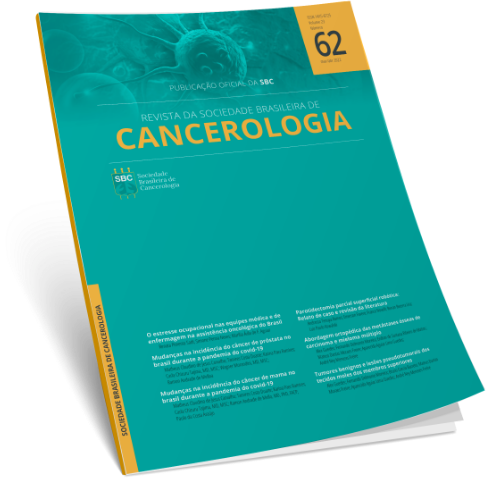Objectives: the prognostic impact of preoperative low total testosterone levels (TT) in prostate cancer
(PC) patients is still contentious. The aims of this study were to analyze if testosterone levels had
influence in adverse clinical or pathological features and plays any roles in patient’s outcomes.
Methods: we identified 1,000 patients diagnosed with clinically localized PC and treated with radical
prostatectomy (RRP) between 1995 and 2008. Clinical records of 307 patients which TT was available
were retrospectively reviewed. Chi-square or Fisher exact test was used to evaluate the association
between clinicopathological characteristics and TT. Differences in dichotomous and continuous
variables were tested using the Mann-Whitney test. Univariate and multivariable Cox model was used
to evaluate the association between clinico-pathological variables and biochemical recurrence (BCR).
Survival functions were estimated by Kaplan-Meier methods and differences by log rank test. Results:
median follow-up was 44 months. Median patient’s age was 62 years and median preoperative PSA was
8.3 ng/mL. Overall, 24% of patients had BCR. Testosterone levels were not associated with clinical or
pathological variables. Despite patients with a low TT had a lower 5-year biochemical recurrence-free
survival, the difference between groups was not statistically significant (p = 0.2 by log rank test). There
was no association between BCR (p = 0.3) or clinical (p = 0.8) recurrence and level of testosterone.
Conclusions: our study did not show any statistically significant association between low testosterone levels and clinical or pathological features as well as clinical or BCR in patients with PC treated with RRP.
Influence of preoperative testosterone levels in outcomes of patients with localized prostate cancer treated with radical prostatectomy
Share
Facebook
Twitter
LinkedIn
LATEST ARTICLE
NATURAL IONIZING RADIATION AND BREAST CANCER IN GUARAPARI, STATE OF ESPÍRITO SANTO, BRAZIL
What is the Weight of Compassion? Facing Professional Fatigue in Palliative Care – An Integrative Review
INVASIVE CUTANEOUS MELANOMA: SURVIVAL AND PROGNOSTIC FACTORS
A Experiência de Ter uma Criança com Recaída de Câncer: Um estudo qualitativo.
Lung Cancer Screening – Low-Dose Chest Computerized Tomography
TONGUE SQUAMOUS CELL CARCINOMA IN YOUNG PACIENTS WHITHOUTKNOWN RISK FACTORS: CASE REPORT

